En xarxa
9. In network
Company chairs, or how to create a collaborative environment to provide solutions to current and future challenges
In-company training plans, student internships, talks and seminars, research line development, publications, scholarships and support for doctoral theses, awards for degree final projects... The stable and long-term collaboration entailed by company chairs makes it possible to pursue broad teaching, research and knowledge transfer objectives to contribute to social enrichment.
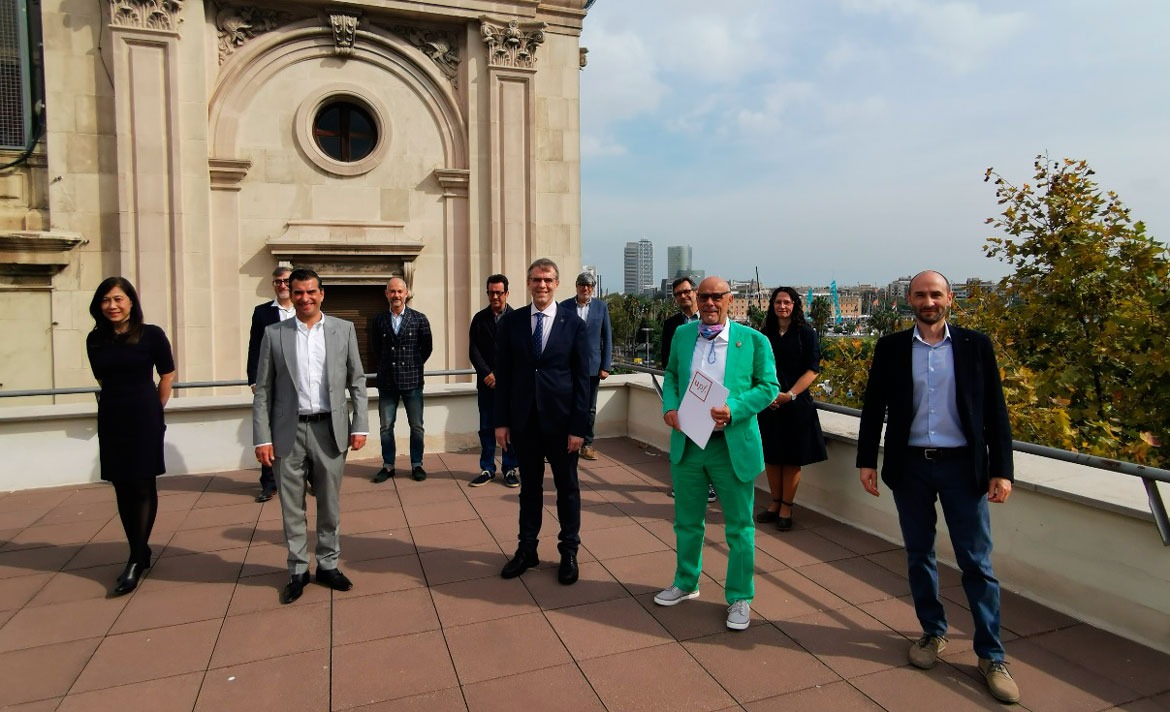
In December 2019, the first cases of people sick with an unknown type of pneumonia were reported in the Chinese city of Wuhan. Not a month had passed before the whole genome sequencing of the infectious agent was published, information that was critical to identifying the virus as a coronavirus, SARS-CoV-2, and taking steps to prevent its spread. Before the year was out, several effective vaccines had been approved.
There may never have been a faster mobilization in the collaborative environment between universities and industry to provide solutions to challenges than that undertaken in the context of the Covid-19 crisis. However, according to many experts, what the pandemic has truly shown is that these partnerships urgently need to be strengthened.
‘The relationships established through these agreements go beyond the strictly economic sphere, making it possible to pursue broad objectives in teaching, research or knowledge transfer in an area of common interest and to contribute to social enrichment’
‘Companies will need to learn to collaborate and work on platforms with start-ups, researchers, universities, and academic and philanthropic institutions. Such an ecosystem will allow all to advance while shielding against future crises’, says the report Restart: 10 Post Covid-19 Trends by the digital innovation consultancy Opinno. At the same time, university faculties need to evolve to integrate themselves as a key piece in the value chain. How? By putting professionals on the market who are ready to take on new challenges and by transferring scientific and technological knowledge to industry to transform society.
To this end, company chairs are an ideal tool, as they formalize stable, long-term partnerships between universities and other organizations. ‘The relationships established through these agreements go beyond the strictly economic sphere, making it possible to pursue broad objectives in teaching, research or knowledge transfer in an area of common interest and to contribute to social enrichment’, said Pau Fernández, head of Institutional Fundraising at UPF.
Custom-defined activities
The term chair is actually a generic way of referring to two different arrangements: chairs that receive external funding, whether from a company or an institution, are called company chairs; institutional chairs, in contrast, do not receive external funding, but are set up by the university itself to draw attention to a strategic issue or highlight the work and legacy of an illustrious person. UPF has ten company chairs and two institutional ones, in fields ranging from biomedical engineering or political communication to the housing of the future, human assisted reproduction, local economic policy, or the history or promotion of the Catalan language and culture.
The activities that can be carried out within the context of a chair are also quite diverse. They may include predoctoral and postdoctoral fellowships, final degree project awards, in-company training plans, student internships, talks and seminars, joint research line development, publications on topics of interest, technical and scientific events, doctoral theses, etc. The content is custom-defined depending on the company’s and university’s priorities and needs and can also be adapted to the specific circumstances at any given time.
The content is custom-defined depending on the company’s and university’s priorities and needs and can also be adapted to the specific circumstances at any given time.
For example, according to representatives of the QUAES Foundation, a biomedical organization, the activities of the QUAES Foundation-UPF Chair are intended to ‘promote the dissemination of medical and scientific advances amongst patients and share knowledge rigorously and accessibly, giving rise to a genuine meeting point for society, academia and healthcare professionals’. To this end, the chair organizes talks at institutes, scientific dialogues, virtual meetings and studies, amongst other things; however, with the outbreak of the pandemic, they had no choice but to engage in certain specific activities of collective interest, such as funding a research project on the effect of zinc supplementation on the immune response to Covid-19.
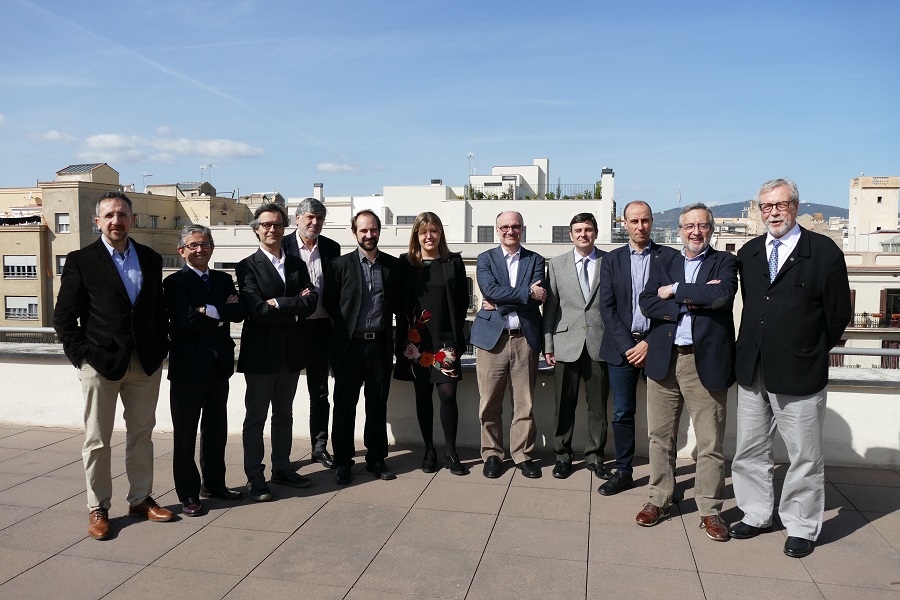
Partnerships with a social impact
Stable partnerships between universities and companies, institutions and other organizations is beneficial to both parties. It allows the university to diversify its revenue streams by adding a private funding component. Establishing relationships with top-tier companies also positively impacts student and research staff training. Additionally, chairs facilitate the university’s social outreach by encouraging more scientific dissemination through workshops, conferences and publications, as well as increased coverage of university activities in the media.
Likewise, chairs afford companies preferential access to talent for recruitment and to key information on research or knowledge transfer projects suited to their needs. For example, the Eugin Group, a global leader in fertility clinics, has been partnering with researchers from UPF and the Centre for Genomic Regulation (CRG) on international projects for years, as well as co-directing the master’s programme in Human Assisted Reproductive Technologies offered by the UPF Barcelona School of Management. In addition to training, the Eugin-UPF Chair allows the group to participate in and organize events to transfer their knowledge of the sector to other societal groups. Rita Vassena, the group’s scientific director, highlighted, in particular, the talks on the use of medically assisted reproduction techniques to prevent rare diseases. ‘Being able to transfer this knowledge to the population through the chair is very enriching and gives meaning to all the company’s activity’, she said.
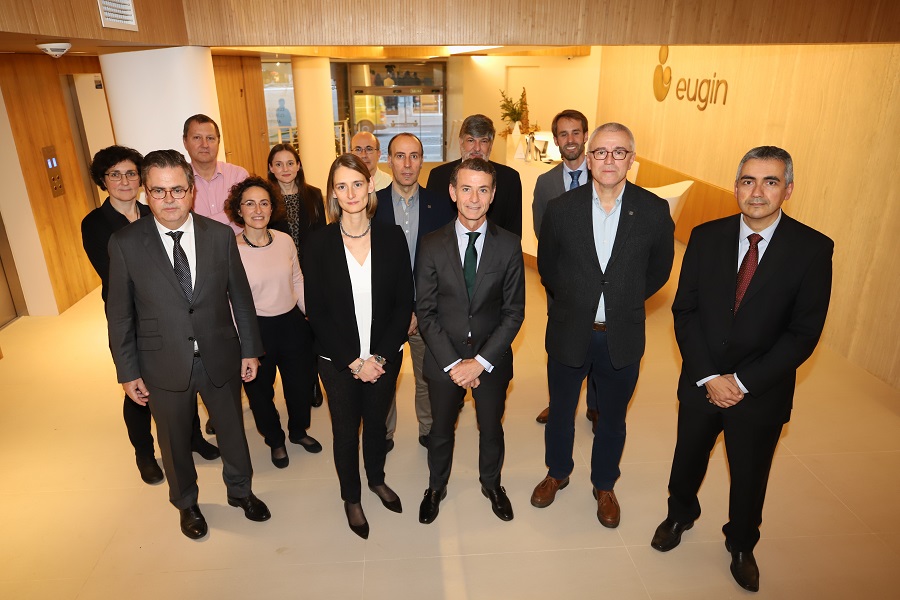
Chairs can also benefit companies by improving their reputation and giving greater visibility to their corporate social responsibility (CSR) commitments. It should not be forgotten that these companies share with the university the goal of carrying out projects of general interest to improve society. For instance, according to Marc Torrent, director general of the Developers’ Association of Catalonia (APCE), the work carried out in the first year of the APCE-UPF Housing and Future Chair has generated ‘a new source of objective statistical data offering insight into the current state of housing and urban development in Catalonia’.
‘Chairs are very valuable tools that bridge the gap between industry and universities, providing both with feedback and enabling a constant and enriching exchange of knowledge that has a direct and positive impact on various areas of society
‘Chairs are very valuable tools that bridge the gap between industry and universities, providing both with feedback and enabling a constant and enriching exchange of knowledge that has a direct and positive impact on various areas of society (politics, the media, research, etc.)’, explained Antoni Gutiérrez-Rubí, a communication consultant and founder of Ideograma, an institutional and public communication consultancy. Ideograma has a long history of partnering with different top-level faculties, promoting new training offers and innovative lines of research. Hence, its participation in the Ideograma-UPF Chair in Political Communication and Democracy, which aims to ‘explore in greater depth, reflect on and analyse how changes in communication are affecting the public narrative in democratic systems’, with a special focus on Latin America.
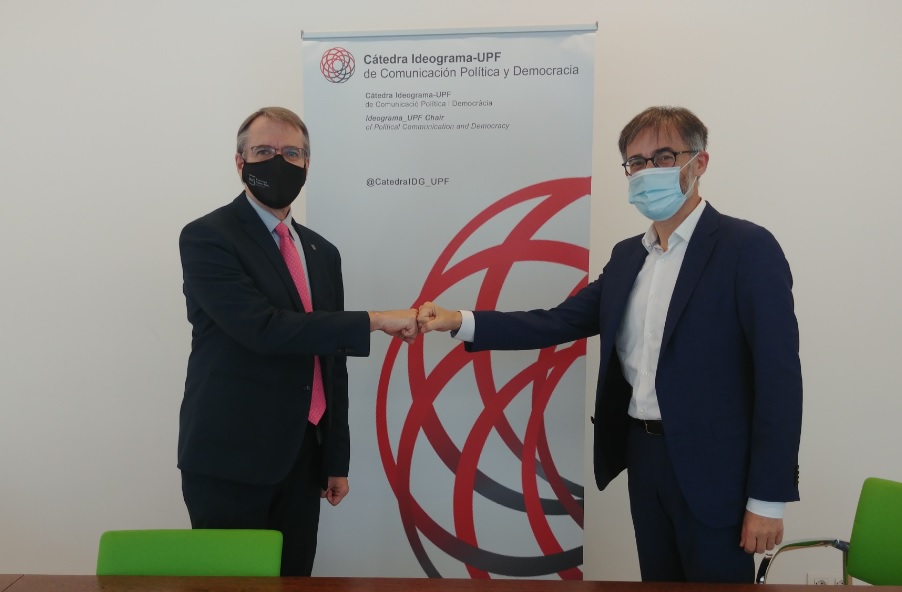
Concluding the partnership agreement
As for how a chair is established, Fernández explained, the initial proposal may come from the company or the university, through its governing bodies, schools and departments, teaching and research staff or administrative and service staff. In all cases, the proposal is submitted to the Rector’s Office for evaluation and approval.
The chairs are formally established through the signing of a ‘conveni de col·laboració empresarial en activitats d’interès general’, a partnership agreement between the university and the public or private organization with regard to activities of general interest. Chairs are thus considered patronage projects (Article 25, Spanish Law 49/2002, of 23 December, on the tax regime for non-profit organizations and tax incentives for patronage), with the ensuing benefits. In exceptional cases, a sponsorship contract may be used.
According to the head of Institutional Fundraising at UPF, ‘The Spanish chair profile usually establishes an endowment of 30,000 euros per year or more.’ Within these parameters, the university and company agree on an activity programme and the duration of the agreement. ‘We propose a term of three years to companies, renewable every three years for an additional three-year period, as the idea is for it to be a stable partnership as opposed to a one-time sponsorship of a project or event.’ The chair is headed by a professional of recognized prestige with a permanent link to the university and has a joint monitoring committee.
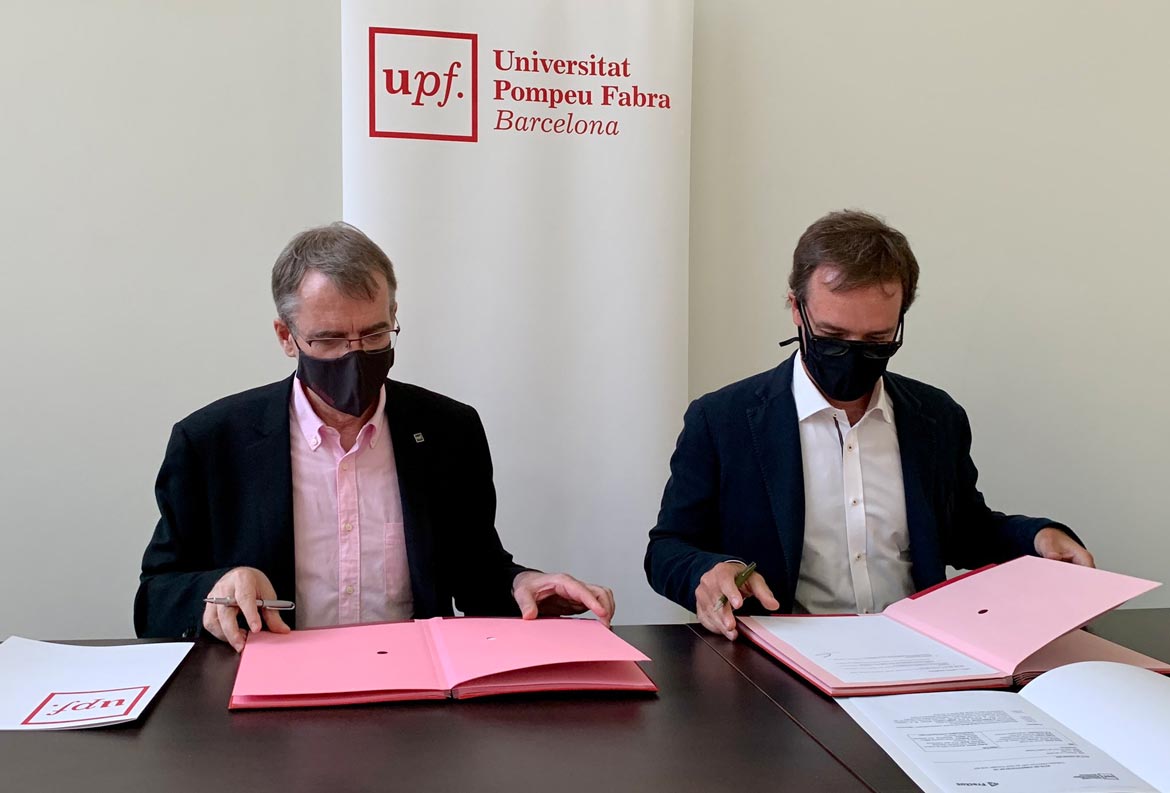
‘Company chairs are the cornerstone of a permanent and fluid relationship with companies, with all that this entails for society, in terms of both product development and the advances the university can make as a result of the additional resources’, Fernández concluded. Consequently, in recent years, the volume of this cooperation mechanism has grown. In 2018, the last year for which the University of Valencia’s Observatori Excellentia Ex Cathedra collected data, the university system had a total of 1,159 company chairs and classrooms.
‘Company chairs are the cornerstone of a permanent and fluid relationship with companies, with all that this entails for society, in terms of both product development and the advances the university can make as a result of the additional resources’
Active Chairs at UPF
Barcelona Chair in Housing Studies
Year: 2022
Director: Josep Ferrer, Department of Law
Description: A forum for Barcelona’s government agencies and public universities (UPF, UPC, UAB, UB) to address the various issues related to housing in order to collaborate on promoting innovative public housing policies based on evidence from disciplines such as law and architecture.
Year: 2021
Director: Miquel Oliver, Department of Information and Communication Technologies
Description: It promotes knowledge in the field of Internet Exchange Traffic protocols, management and business by offering educational materials to train ICT professionals. One of the main agreements is that for the creation of the Interconnection Academy, offering joint training and certificates of achievement with UPF.
Fractus-UPF Chair on Tech Transfer and 6G
Year: 2021
Director: Àngel Lozano, Department of Information and Communication Technologies
Description: Improving the transmission speed and reducing the energy consumption of future 6G systems and the search for connectivity in the field of the Internet of Things (IoT) are two of the strategies it promotes through training, research and knowledge transfer.
APCE-UPF Housing and Future Chair
Year: 2021
Director: Josep Raya, Department of Economics and Business
Description: It promotes teaching, research and knowledge dissemination in the field of real estate, in synergy with other economic and social areas, such as tourism and sustainability, to add value to the training of tomorrow’s professionals and improve urban policy in this sector.
Year: 2020
Directors: Carles Feixa and Gemma Sendra, Department of Communication
Description: It is set up as a laboratory of ideas for rethinking the intergenerational contract in the post-pandemic era. Its activities are organized into work areas that prioritize the UN’s Sustainable Development Goals related to the climate emergency, technological transformation and social inequalities.
Year: 2019
Director: Francesc Calafell, Department of Medicine and Life Sciences
Description: It promotes teaching, research and knowledge dissemination in the field of human reproduction in general and human assisted reproduction in particular. It takes a clearly cross-disciplinary approach that includes basic biology, medicine and social, cultural, ethical and psychological aspects of this field.
Ideograma-UPF Chair in Political Communication and Democracy
Year: 2018
Director: Carles Pont, Department of Communication
Description: It promotes training, research and knowledge dissemination in the field of political communication and its effects on democratic systems. It conveys its reflections and proposals through the organization of activities for the general and specialized publics and articles in the media.
Barcelona-UPF Chair in Local Economic Policy
Year: 2018
Director: David Sancho, Department of Political and Social Sciences
Description: It promotes a comprehensive and plural vision of local, economic, social and environmental development that translates to specific public policies to improve people’s quality of life. Its innovative approach encompasses the city’s new strategic sectors, such as the green, digital and industrial economies.
QUAES-UPF Chair in Biomedicine and Biomedical Engineering
Year: 2017
Director: Paco Muñoz, Department of Medicine and Life Sciences
Description: It gives continuity to the former QUAES-UPF Chair for Computational Technologies for Healthcare, with the main aim of promoting scientific knowledge dissemination, training and research in the field of biomedicine and biomedical engineering with a clear social dimension.
Year: 2002
Director: Miquel Oliver, Department of Information and Communication Technologies
Description: Continuing a relationship that dates back twenty years to promote research, improved training and the dissemination of emerging educational technologies, this chair focuses on the use of blockchain as a tool in the world of digital education for both assessment and management.
Year: 2014
Director: Rosa Estopà, Department of Translation and Language Sciences
Description: The chair aims to make UPF’s commitment to Catalanness more explicit and raise the profile of the activities carried out at the university to promote the Catalan language and culture. It also promotes activities related to Pompeu Fabra the scientist and his cultural and civic commitment.
Year: 2022
Directors: Josep M. Delgado and Josep Pich, Department of Humanities
Description: It promotes the work of young researchers in the field of history, the organization of activities for historiographic reflection and debate, and the dissemination of the work of Josep Fontana (through the publication of previously unpublished material), a professor at UPF and one of the great renovators of Spanish historiography.
